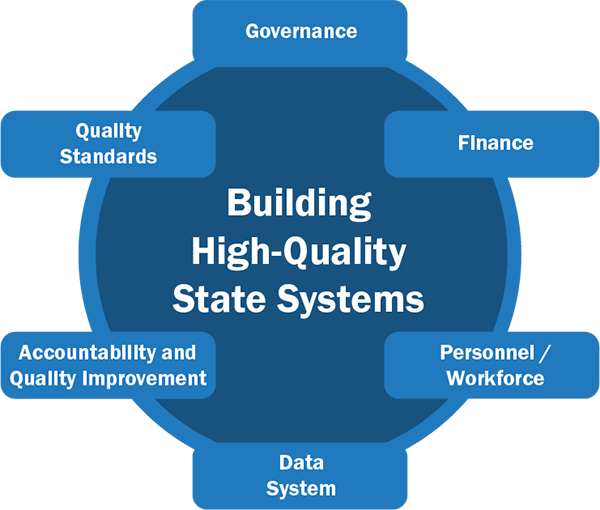Quality Rating and Improvement Systems
Topic Editors: Jani Kozlowski
jani.kozlowski@unc.eduIncreasingly, states are developing Quality Rating and Improvement Systems (QRIS), also referred to as Tiered Quality Rating and Improvement Systems (TQRIS) or Quality Rating Systems (QRS), to assess and improve the quality of early care and education programs for young children, increase parents' understanding of and access to quality child care, and enhance the professional development of early care and education providers.
See also: eNotes on QRIS and Early Childhood Data Sources: Quality Rating and Improvement Systems (QRIS)

ECTA System Framework: Quality Standards Component
The Quality Standards component guides Part C and Section 619 Coordinators, their staff and partners in an ongoing process of evaluating the quality of their programs and services within the context of the larger early care and education community, to ensure continuous program improvement and to develop more effective, efficient systems that support enhanced child and family outcomes.
Get StartedQuality Compendium
Quality Compendium: A Catalog and Comparison of Quality Improvement Systems (QIS) is jointly developed by the Build Initiative and Child Trends, which catalogs and compares quality initiatives such as the Quality Rating and Improvement Systems (QRIS). The compendium includes state profiles, and an indicator category database including provisions for children with special needs.
